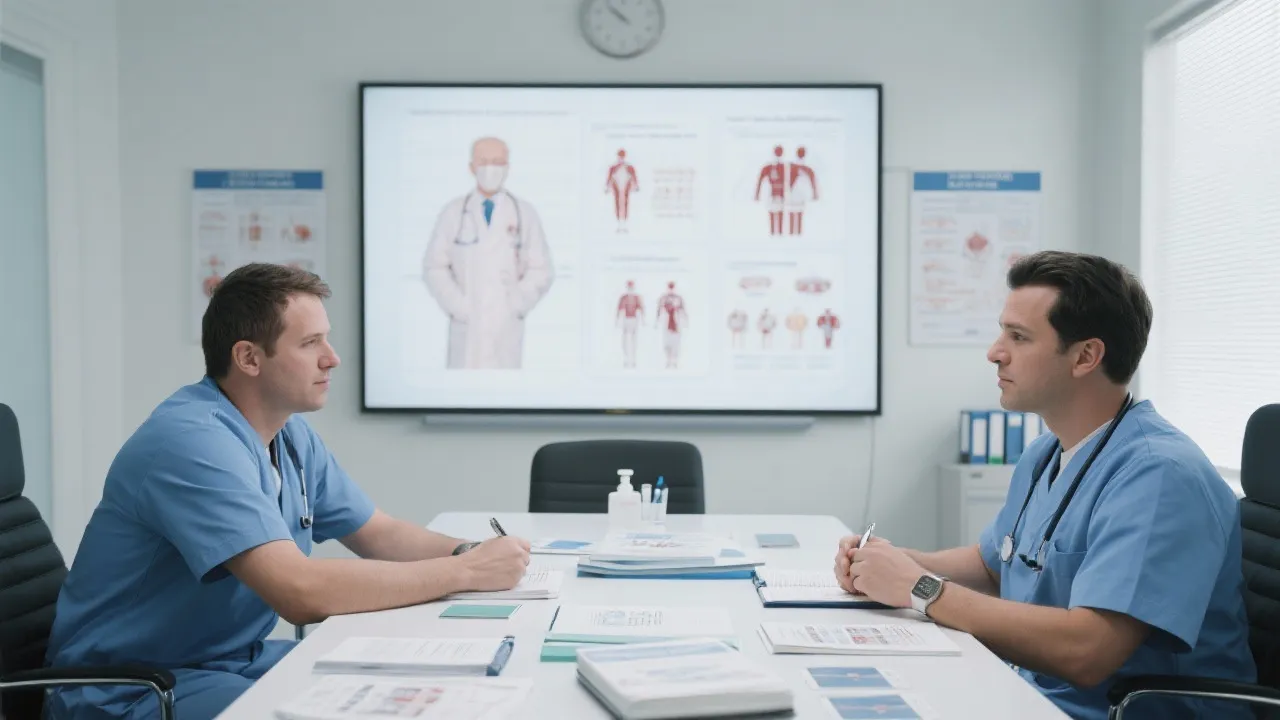Understanding the LPN Certificate Pathway
The LPN Certificate is a stepping stone for individuals aiming to enter the healthcare field as Licensed Practical Nurses. This certification involves structured training programs that equip candidates with necessary nursing skills and knowledge. Programs are designed to be comprehensive and often require supervised clinical practice, enabling graduates to meet healthcare demands effectively.

What is an LPN Certificate?
The Licensed Practical Nurse (LPN) Certificate is an educational credential designed for those pursuing a career in nursing. LPNs play a crucial role in the healthcare industry, providing basic nursing care under the supervision of registered nurses and physicians. Obtaining this certificate involves a commitment to rigorous study and clinical practice, preparing individuals for the challenges of the nursing profession. It not only signifies a fundamental understanding of nursing concepts but also clears a path into a highly respected occupation that has a lasting impact on patient health and well-being.
Importance of LPN Certification
Certification as an LPN not only signifies proficiency in fundamental nursing practices but also enhances a candidate's employment prospects in various medical settings. With a growing demand for healthcare professionals, LPNs are vital in assisting in patient care, documenting patient information, administering medication, and performing other patient-facing roles. They often serve as the first point of contact for patients, enabling them to develop essential communication and patient interaction skills that are critical in enhancing patient experiences. By obtaining certification, LPNs can also demonstrate to employers their commitment to professional development and adherence to industry standards.
Pathway to Obtaining an LPN Certificate
The journey to becoming a certified LPN starts with enrolling in a state-approved educational program, which is usually offered by community colleges, vocational schools, or healthcare training institutions. These programs typically span 12-18 months, encompassing both theoretical coursework and supervised clinical experience. Students learn to apply classroom knowledge in real-world situations, providing comfort in their competence as they prepare to enter the workforce.
The admissions process for LPN programs may include prerequisites such as high school graduation or equivalent, passing entrance exams, and background checks to ensure compliance with healthcare requirements. Prospective students often find that attending an open house or information session can help them get a feel for the training program and its specific focus areas, curriculum, and expectations. Additionally, financial considerations, such as tuition costs, availability of financial aid, and scholarship opportunities, should be evaluated to ensure affordability.
Coursework and Clinical Training
LPN programs cover fundamental nursing concepts including anatomy, physiology, pharmacology, nutrition, and patient care techniques. Theoretical instruction typically includes classes that deepen the understanding of body systems, common illnesses, and interventions. Students are also taught about medical ethics and legal aspects of nursing, which are crucial for protecting patient rights and ensuring safe practice.
Clinical rotations provide hands-on experience, honing skills essential for patient interaction and care management in real-world healthcare settings. Students gain vital exposure to various healthcare environments, including hospitals, nursing homes, and clinics, where they directly work with patients under the supervision of qualified nurses. These rotations are instrumental in helping aspiring LPNs to build their confidence in performing practical tasks such as measuring vital signs, changing dressings, and assisting with mobility, which are pivotal aspects of patient care.
Certification Exam and Licensure
Upon completion of an LPN program, graduates must pass the National Council Licensure Examination for Practical Nurses (NCLEX-PN). This standardized exam assesses the knowledge and skills requisite for safe and effective nursing practice. Topics covered on the exam include safe and effective care environment, health promotion and maintenance, psychosocial integrity, and physiological integrity. Preparing for the NCLEX-PN often involves intensive review sessions, study groups, and utilization of practice exams to fully grasp the content.
Successful candidates obtain licensure, enabling them to practice as LPNs. Licensure requirements may vary by state, so it’s important for graduates to verify the specific regulations related to their state of residence. Additionally, maintaining licensure may require continuing education credits to stay current with medical practices and technologies, as well as renewal fees. This commitment ensures that LPNs remain updated with the best practices and advancements in the nursing field, ultimately benefiting their patients.
Advantages of Pursuing an LPN Certificate
An LPN certification offers numerous benefits, including faster entry into the workforce compared to registered nurse pathways, flexibility in work settings, and opportunities for career advancement. LPNs enjoy a diverse array of employment opportunities in various settings, including hospitals, nursing homes, outpatient clinics, and home health agencies. The demand for LPNs allows for greater job security, especially as the healthcare sector continues to grow. With additional training and experience, LPNs can progress to roles with greater responsibilities or further their education to become registered nurses (RNs). Many LPNs choose to advance their careers through bridge programs that facilitate transition into RN roles, culminating in broader scopes of practice and higher earning potential.
Comparison Table: LPN vs RN
| Criteria | LPN | RN |
|---|---|---|
| Training Duration | 12-18 months | 2-4 years |
| Scope of Practice | Basic nursing care | Comprehensive patient care, including assessments and complex procedures |
| Advancement Opportunities | Limited, can transition to RN with further education | Wide, including specializations and management roles |
| Salary Range | $40,000 - $55,000 | $60,000 - $80,000 |
| Patient Assessment | Basic assessments | In-depth assessments and care planning |
| Medications Administration | Administer medications under supervision | Independent medications administration, including IV therapies |
FAQs
What are typical job settings for LPNs?
LPNs commonly work in nursing homes, hospitals, physician offices, and home healthcare settings, where they provide essential patient care and assist other healthcare professionals. The environments where LPNs operate often influence their roles; for instance, LPNs in nursing homes might focus on long-term patient care, while those in hospitals may gain experience in acute care settings.
Can LPNs specialize in certain areas within nursing?
While LPN roles are more generalized, they can gain specific expertise in areas like geriatrics, pediatrics, or home health care through targeted experience or training. Specialization not only improves their skill set but also enhances career prospects, as some employers prefer LPNs who demonstrate a proven interest in certain nursing fields. Continued education through workshops and additional certifications can further increase their specialized knowledge and expand job opportunities.
How do I choose the right LPN program?
Consider factors like program accreditation, curriculum, clinical placement opportunities, and pass rates for the NCLEX-PN exam when selecting a program. Additionally, assess the availability of faculty support and resources, such as tutoring services and job placement assistance. Prospective students should also consider the geographical location of the program and how it aligns with their personal life and financial obligations, because proximity can affect commuting costs and time. Another consideration may involve reviewing student testimonials or speaking with alumni about their experiences in the program to gauge the effectiveness and quality of the education provided.
What are the continuing education requirements for LPNs?
Continuing education requirements for LPNs vary by state but generally include completing a certain number of continuing education hours every two to three years to maintain licensure. These requirements ensure that LPNs remain current with ongoing advancements in healthcare, emerging technologies, and evolving best practices in patient care. Various organizations provide continuing education courses, some of which might be offered online for greater flexibility and convenience. Many LPNs find that these educational opportunities can enhance their skills, introduce them to new areas of nursing practice, and prepare them for specialized certifications.
Career Outlook for LPNs
The career outlook for LPNs is favorable, with the U.S. Bureau of Labor Statistics projecting a growth rate of approximately 9% from 2020 to 2030. This increase reflects an ongoing need for healthcare services, particularly as the population ages and chronic health conditions become more prevalent. LPNs are often sought after to fill workforce gaps in various settings, including long-term care facilities, which are anticipated to see increased demand due to an aging population requiring support and individualized care.
Moreover, the evolving nature of healthcare, including advances in medical technology, expands the scope of duties that LPNs may perform. As healthcare systems continue to adapt, LPNs who pursue additional certifications or specialize in fields such as wound care, IV therapy, or geriatric care may find themselves in particularly high demand. Networking at industry conferences and joining professional organizations can also provide LPNs with pathways to connect with potential employers and stay informed about job opportunities.
Challenges Faced by LPNs
While a career as an LPN can be immensely rewarding, it also presents several challenges. LPNs often work long hours, including nights, weekends, and holidays, to meet the needs of their patients. The physical demands of the job, such as lifting patients and being on their feet for prolonged periods, can lead to fatigue or injury if proper precautions are not taken.
Additionally, LPNs can often experience stress from the emotional aspects of patient care, particularly in settings where they form close relationships with patients. Time management can also be a challenge. Balancing the need to provide thorough patient care while adhering to busy schedules and strict documentation requirements can become overwhelming. Support systems, such as mentorship programs and peer support groups, can help LPNs manage stress and navigate these challenges effectively.
Conclusion
The LPN Certificate is a valuable credential in the nursing profession, providing entry into a rewarding career with potential for growth and development. As healthcare demands continue to rise, LPNs remain integral to delivering quality patient care, bridging the gap in healthcare services, and ensuring comprehensive care across various medical environments. By considering various pathways for education, certification, and specialization, individuals can strategically position themselves within the healthcare field and contribute to the well-being of their communities. Armed with their skills, compassion, and dedication, LPNs play an essential role in fostering a healthier society.





